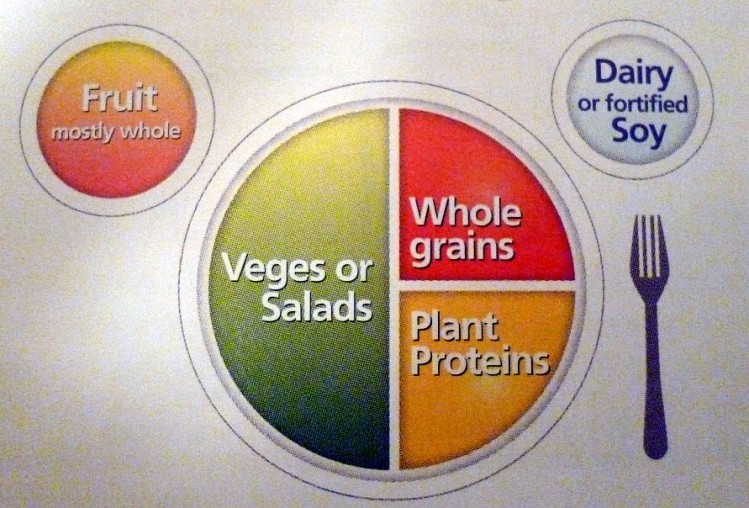6 - Go veggie: Boost your health and save the planet?
And next to another hot trend: 'plant-based diets'.
While no-one is anticipating that Americans will ditch burgers anytime soon, there is a growing body of scientific evidence that it's better for your health - and the health of the planet - to reduce meat consumption, say scientists.
Meanwhile, the quality and variety of meat-alternatives on the market continues to improve, while there is also a growing number of firms exploring the merits of plant-based proteins to replace dairy and egg ingredients.
46% of 18-24 year olds shop the meat-alternatives category compared with 30% of people aged 65 and over
According to Mintel, while just 7% of Americans identify themselves as vegetarian, more than a third of shoppers (36%) buy meat alternatives, suggesting the category is appealing to a far broader demographic.
Indeed, a-third of consumers use meat alternatives because they are healthy, higher than any other reason, food and drink analyst Beth Bloom told FoodNavigator-USA.
“More than half (51%) of 2,000 adults we surveyed in March also believe meat-alternatives are healthier than real meat, and we’re seeing higher consumption rates in households with children, which probably relates to the health factor. Younger people are also more likely to buy them, with 46% of 18-24 year olds shopping the category compared with 30% of people aged 65 and over.”
Meanwhile, some 31% of grocery shoppers surveyed are trying to reduce their meat consumption, she said.
The fact vegetarians are healthier than meat-eaters is ‘one of the most consistent findings of nutritional epidemiology’
Meanwhile, people on a plant-based diet are consistently slimmer and healthier than meat eaters, with a lower risk of cardiovascular disease, cancer and diabetes, according to research unveiled at the 6th International Congress on Vegetarian Nutrition (ICVN) in February.
The headline-grabbing news from the three-day conference at Loma Linda University in California, was the results of a clinical trial - published in the New England Journal of Medicine - which found that primarily plant-based diets supplemented with nuts and virgin olive oil can reduce risk of cardiovascular events by 30%. Click here for details.
However, vegetarians - who typically have lower blood pressure and lower LDL cholesterol - also have a lower BMI, lower fasting blood glucose (resulting in a lower incidence of type 2 diabetes) and a lower risk of developing certain cancers, said successive speakers at the event, which attracted more than 750 delegates from all over the world.
Environmental footprint of vegan and vegetarian diets 30% lower than non-vegetarian diets, say researchers
And if the evidence that plant-based diets are better for human health is compelling, the evidence that they are better for the planet is indisputable, delegates at the Congress were told.
Indeed, if we are to have any hope of feeding 9bn people by 2050, they will have to be on a predominantly vegetarian diet, said successive speakers.

While a lot of studies have made assumptions about the environmental benefits of plant-based diets based on theoretical models, researchers at Loma Linda have been able to provide clear evidence of these benefits by analyzing real-world data on dietary patterns from the AHS-2 cohort of 96,000 seventh day Adventists living in the US and Canada, said Dr Samuel Soret, Assistant Professor and Chair - Department of Environmental Health and Geoinformatics Sciences, at the University’s school of Public Health.
Vegans’ GHG emissions were 41.7% lower than non-vegetarians’, while lacto-ovo vegetarians’ emissions were 27.8% lower
Analysis of the cohort - which was divided into hardcore vegans, lacto-ovo vegetarians (who eat dairy), pesco vegetarians (who eat fish), semi-vegetarians (who eat some meat), and non-vegetarians - showed conclusively that those consuming a vegan diet were responsible for the lowest greenhouse gas (GHG) emissions, followed by the lacto-ovo vegetarians, then pesco-vegetarians and so on, with those on the non-vegetarian diet generating the largest environmental footprint, he said.
And for the first time, he said, researchers also looked at the relative health outcomes of the five groups and saw a corresponding pattern, with the vegans having the lowest risk of chronic disease and the non-vegetarians the highest, providing compelling evidence that healthier diets are also more sustainable.
“Vegans’ GHG emissions [calculated using SimaPro7 life cycle assessment software] were 41.7% lower than the non-vegetarians, lacto-ovo vegetarians’ emissions were 27.8% lower, pesco-vegetarians’ were 23.8% lower and semi-vegetarians were just under 20% lower.”
Combined, the vegans and vegetarians generated 30% fewer GHG emissions than meat eaters, he told FoodNavigator-USA.
As for how to persuade consumers to change their diets, approaches that focus on how cutting down on meat and eating more plant-based foods could improve your health are much more likely to win people over than lecturing consumers about greenhouse gases, which are not top of mind when you go grocery shopping, delegates were told.





























